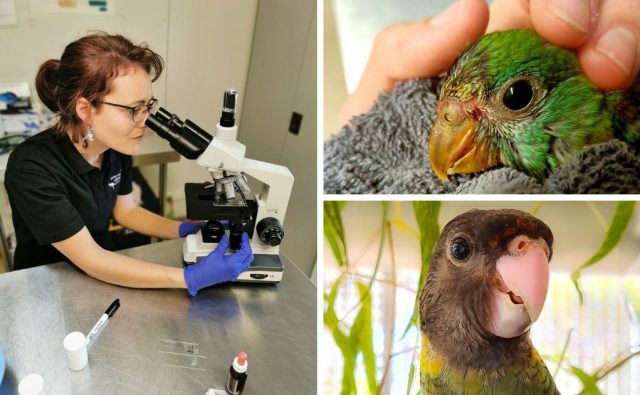
Wildlife shelters and veterinary hospitals across Perth have recorded a sharp increase in cases of Avian Gastric Yeast (AGY).
AGY is caused by a fungus that invades the insides of some bird species, primarily parrots and cockatoos.
The disease commonly infects galahs, twenty-eight parrots, and corellas during the Autumn and spring months.
After contracting the disease, the affected birds begin to rapidly lose weight and become weak.
DRWS wildlife liaison and support manager Yasmin Hunter said that almost all of their recent AGY patients were spotted in suburban areas.
“We know backyard feeding/ seed bowls can be a source of the disease, as sick birds will seek them out and leave behind droppings with the infective fungus,” she said.
“Other young or immunocompromised birds may come along and contract the disease from the contaminated seed bowls.”
Ms Hunter has urged all community members to obtain native plants to feed local wildlife, rather than put out seed bowls.

“Prevention of disease transmission is the key,” she said.
“If people do continue feeding parrots, we recommend keeping food and water bowls clean, and discarding uneaten food regularly.
“We also urge people to report sick parrots immediately, so they can be caught and treated for disease.
“If any wildlife is seen acting abnormal, sick, injured or trapped, we urge people to call a wildlife shelter or vet for advice.
“Alternatively, if it is safe to do so, wildlife can be carefully contained in a towel and secured box and taken directly to a wildlife shelter or vet.”













